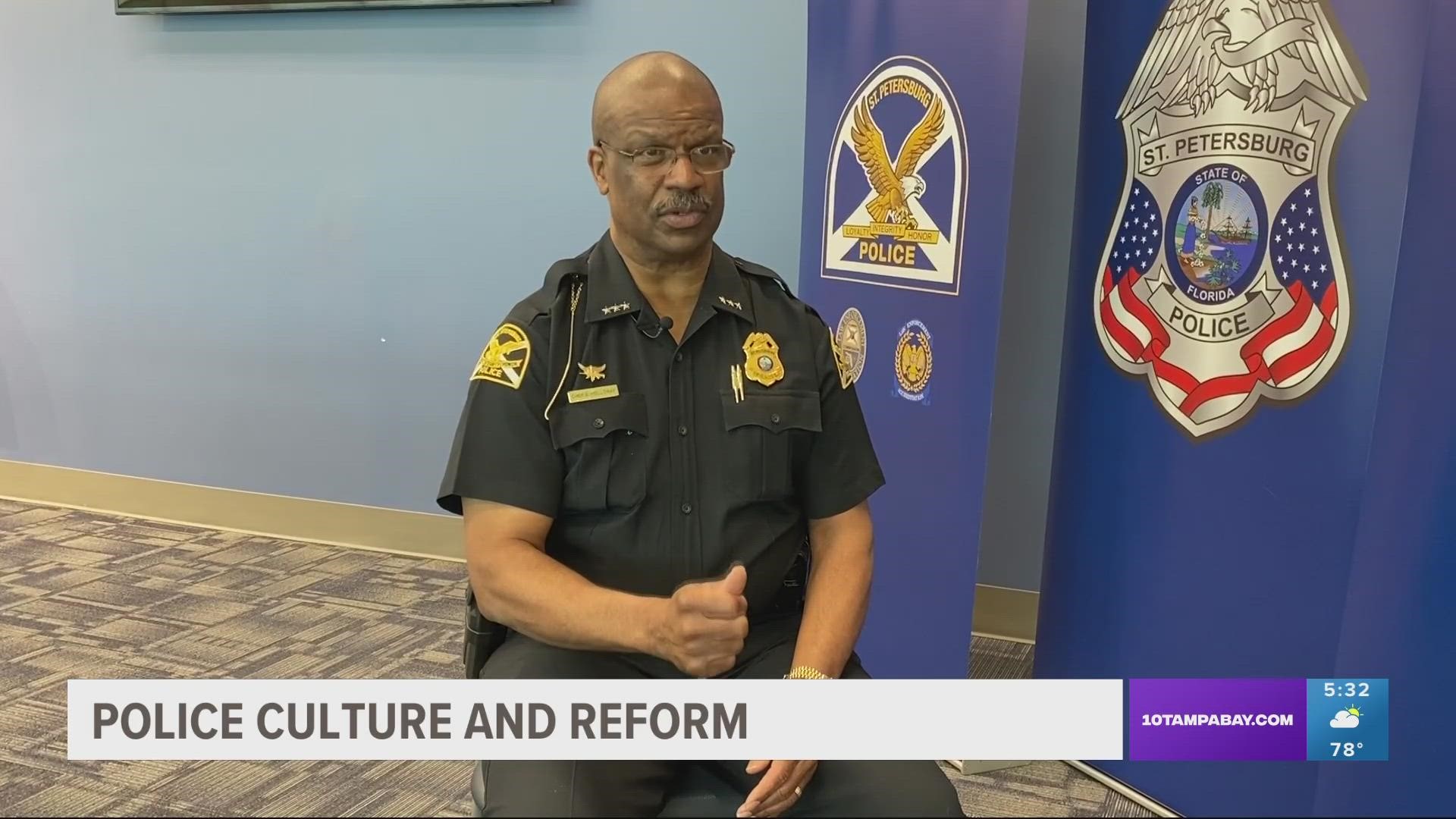ST. PETERSBURG, Fla. — With policing in America once again under the microscope, conversations about reform, police culture, and current tactics and procedures are in question.
Five former Memphis police officers were charged with murder for the deadly beating of Tyre Nichols after a traffic stop.
They were part of a special unit tasked with patrolling high-crime areas. The tactic is known as "hot spot policing."
St. Petersburg Police Chief Anthony Holloway said he only allows experienced officers to work in special units with a supervisor who keeps the team accountable.
"You have a unit like that in place, first of all, what's your mission and what's your goal?" Holloway said. " Who's going to supervise that unit? What's the game plan and when are you going to stop using that unit."
Dr. David Thomas, a professor in the department of justice studies at Florida Gulf Coast University and a retired police officer, said units working hot spots need ongoing training because the stakes are very high.
"We’re sending you out there to really shake people up and to make a difference, but we also want to make sure we do it legally," Thomas said.
Holloway says the Memphis incident tarnishes the reputation of all law enforcement, especially when it comes to community policing.
"You got to work hand and hand with the community. You can't assume that you know what the problem is, ask the people that live there," Holloway said.
Thomas says there needs to be reform in police culture.
"The greatest failure law enforcement has is, it has not learned from its mistakes of the past so the history keeps repeating itself," he said.
Thomas explained officers tend to get promoted based on the number of citations they issue or how many arrests they make. There needs to be more emphasis on the positive impact.
Before promoting an officer, Holloway said he asks who they know in the community, how many people they've made relationships with and tries to understand their impact outside of tickets and arrests.
Part of the culture clash could be rooted in trying to find a balance between ego and authority.
"When police are disrespected, when a person does not comply, that is often the tipping point of how we get to some form of physical, putting my hands on somebody," Thomas said.

